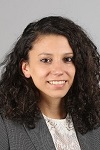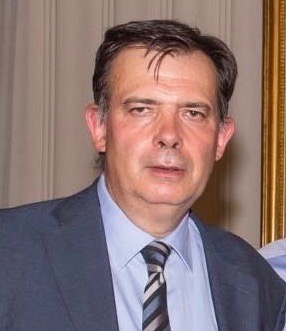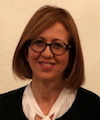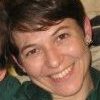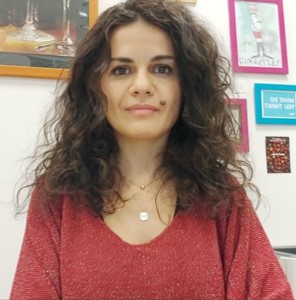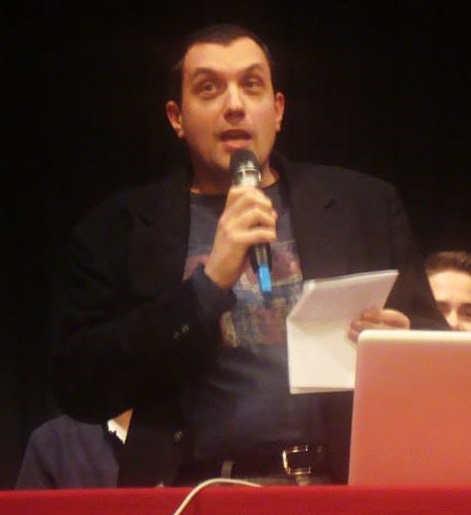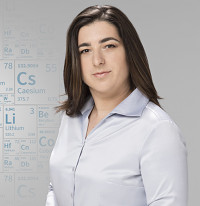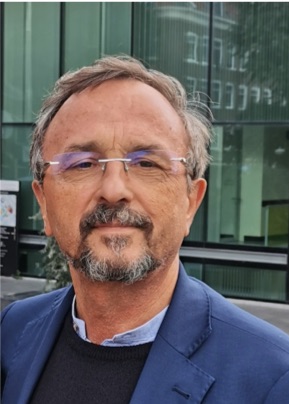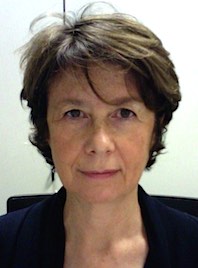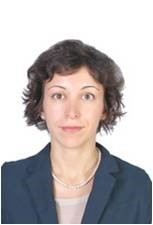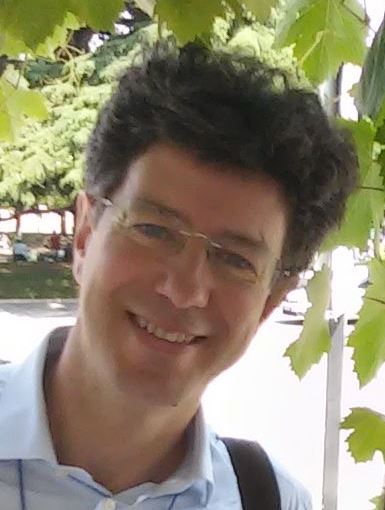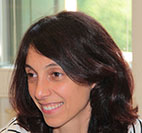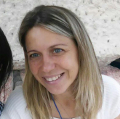Studying at the University of Verona
Here you can find information on the organisational aspects of the Programme, lecture timetables, learning activities and useful contact details for your time at the University, from enrolment to graduation.
Academic calendar
The academic calendar shows the deadlines and scheduled events that are relevant to students, teaching and technical-administrative staff of the University. Public holidays and University closures are also indicated. The academic year normally begins on 1 October each year and ends on 30 September of the following year.
Course calendar
The Academic Calendar sets out the degree programme lecture and exam timetables, as well as the relevant university closure dates..
| Period | From | To |
|---|---|---|
| I sem. | Oct 2, 2017 | Jan 31, 2018 |
| I sem - 3° anno | Oct 30, 2017 | Jan 31, 2018 |
| II sem. | Mar 1, 2018 | Jun 15, 2018 |
| Session | From | To |
|---|---|---|
| Sessione invernale d'esame | Feb 1, 2018 | Feb 28, 2018 |
| Sessione estiva d'esame | Jun 18, 2018 | Jul 31, 2018 |
| Sessione autunnale d'esame | Sep 3, 2018 | Sep 28, 2018 |
| Session | From | To |
|---|---|---|
| Sessione estiva di laurea | Jul 20, 2018 | Jul 20, 2018 |
| Sessione autunnale di laurea | Nov 27, 2018 | Nov 27, 2018 |
| Sessione invernale di laurea | Mar 27, 2019 | Mar 27, 2019 |
| Period | From | To |
|---|---|---|
| Christmas break | Dec 22, 2017 | Jan 7, 2018 |
| Easter break | Mar 30, 2018 | Apr 3, 2018 |
| Patron Saint Day | May 21, 2018 | May 21, 2018 |
| VACANZE ESTIVE | Aug 6, 2018 | Aug 19, 2018 |
Exam calendar
Exam dates and rounds are managed by the relevant Science and Engineering Teaching and Student Services Unit.
To view all the exam sessions available, please use the Exam dashboard on ESSE3.
If you forgot your login details or have problems logging in, please contact the relevant IT HelpDesk, or check the login details recovery web page.
Should you have any doubts or questions, please check the Enrollment FAQs
Academic staff
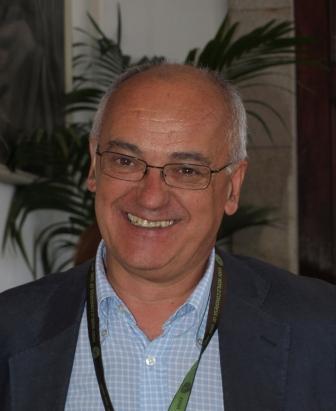
Boselli Maurizio
 maurizio.boselli@univr.it
maurizio.boselli@univr.it
 3478344185
3478344185
 lorenzo.meneghini@univr.it
lorenzo.meneghini@univr.it
 chiara.nardon@univr.it
chiara.nardon@univr.it
Sandri Marco
 marco.sandri@univr.it
marco.sandri@univr.it
Study Plan
The Study Plan includes all modules, teaching and learning activities that each student will need to undertake during their time at the University.
Please select your Study Plan based on your enrollment year.
1° Year
| Modules | Credits | TAF | SSD |
|---|
2° Year activated in the A.Y. 2018/2019
| Modules | Credits | TAF | SSD |
|---|
3° Year activated in the A.Y. 2019/2020
| Modules | Credits | TAF | SSD |
|---|
| Modules | Credits | TAF | SSD |
|---|
| Modules | Credits | TAF | SSD |
|---|
| Modules | Credits | TAF | SSD |
|---|
Legend | Type of training activity (TTA)
TAF (Type of Educational Activity) All courses and activities are classified into different types of educational activities, indicated by a letter.
Oenology II - TECNOLOGIE E CONDIZIONAMENTO DEI VINI (2019/2020)
Teaching code
4S00151
Teacher
Credits
3
Language
Italian
Scientific Disciplinary Sector (SSD)
AGR/15 - FOOD SCIENCE AND TECHNOLOGY
Period
II semestre dal Mar 2, 2020 al Jun 12, 2020.
To show the organization of the course that includes this module, follow this link: Course organization
Learning outcomes
------------------------
MM: Teoria
------------------------
Aim of the course is to provide the students with the basic knowledge related to wine packaging and conditioning, with a special emphasis on the relationships among container, closure and product. At the end of the course the students should be able to choose, according to the product category and characteristics, consumers’ requests and production costs, the most suitable conditioning procedure as well as the packaging so to ensure that the required quality and shelf-life of the products.
------------------------
MM: Laboratorio
------------------------
Through an active participation to the solution of practical case studies, the students will acquire the required knowledge and skills for the correct choice of suitable technical processes, containers and closures, as well as for the management of problems that may arise during the various steps of wine conditioning. Furthermore, participating to guided visits to wine production plants or to factories manufacturing equipment for the wine industries, the students will meet and discuss with technical specialists and will be able to realize the issues related to the real life on a production line.
Program
------------------------
MM: Teoria
------------------------
The main issues related to conditioning and packaging of wine products: - Packaging materials: glass, PET, tetrapack, steel; technical characteristics and properties, advantages and disadvantages related to their utilization. - Bottle closures: natural and synthetic cork, metallic screw cap closures, crown caps, glass stoppers; technical characteristics and properties, advantages and disadvantages related to their utilization. - Cleaning and sanitation processes for wine containers: how and why. Choice and use of cleaning and sanitation chemicals, the role of water; CIP and COP technical choices. - Wine prefilling treatments: cooling, filtration technology, filtration index. - Filling of wine containers: description of the available equipment, properties, advantages and disadvantages, choice of the suitable equipment according to the product’s characteristics. - The use of heat shrink capsules, collars, labels: technical characteristics, equipment, advantages and disadvantages related to different labelling techniques. Besides the suggested textbooks, some study material might also be provided by the lecturer.
------------------------
MM: Laboratorio
------------------------
The exercise/practical part of the course will be devoted to solving real problems that may occur during the production. The students will be guided to find practical answers to the problems, therefore being obliged to have a global approach to the various issues and to take care of all the possible interactions that may occur within the various steps of the conditioning process and the product. Within this frame, students will also participate to guided visits to wine production plants or to factories manufacturing equipment for the wine industry.
| Author | Title | Publishing house | Year | ISBN | Notes |
|---|---|---|---|---|---|
| Trapani N. | Cultura e tecnica Enologica. Vol. 3 Stabilizzazione Imbottigliamento Vini Speciali | Enovitis | 2012 | 978-88-90-14334-2 | |
| Bertoldi A., Galli A. | Igiene degli alimenti e HACCP. In accordo con le disposizioni del pacchetto igiene. Modelli applicativi | EPC | 2012 | 978-8-863-1-0190-4 | |
| Mazzoleni V. (a cura di) | Il sughero manuale tecnico per il corretto utilizzo dei tappi Disponibile On line http://www.amorimcorkitalia.com/img/Manuale_Tecnico_per_il_corretto_utilizzo_dei_Tappi.pdf | Lucini officina d’arte grafica | 2012 | ||
| Liberati D. | I tappi sintetici in enologia | ENO-ONE | 2005 | 978-8-888-79204-0 | |
| Mazzoleni V., Zironi R., Campisi B. | Manuale d’uso sulle tecniche di tappatura delle bottiglie di vino | Consorzio per l’AREA di ricerca scientifica e tecnologica di Trieste | 2001 | ||
| Calà P. Sciullo A. | Materiali destinati al contatto con gli alimenti | Chiriotti Editore | 2006 | 88-85022-97-9 | |
| Ribereau-Gayon | Trattato di enologia vol I e II (Edizione 3) | Edagricole | 2007 | ||
| Jackson, Ronald | Wine Science (Edizione 3) | Elsevier | 2014 | 978-0-12-381468-5 |
Examination Methods
------------------------
MM: Teoria
------------------------
Oral exam - Initially the student will be asked to discuss one of the topics of the course that he considered of the utmost interest. Afterwards, the lecturer will present a practical problem that may be faced in the real working life and will evaluate how the candidate will organize and utilize the scientific and technical skills acquired during the study to highlight a possible solution to the problem. In this way the student will be oriented to study for acquiring not a mere "theoretical knowledge" but a "practical" one. The student will be graded over a score of 30 points, being 18 the minimum score to pass the exam. No different evaluation modalities are planned for students who have attended or not the theoretical and/or the practical part of the course.
------------------------
MM: Laboratorio
------------------------
Students are not required to take a specific exam for the practical part of the course. However, the acquired knowledge and skills will be evaluated within the oral exam set for the theoretical part of the course, taking into account the students’ capability to adapt and use in the real productive world the acquired theoretical knowledge and skills.
Type D and Type F activities
Modules not yet included
Career prospects
Module/Programme news
News for students
There you will find information, resources and services useful during your time at the University (Student’s exam record, your study plan on ESSE3, Distance Learning courses, university email account, office forms, administrative procedures, etc.). You can log into MyUnivr with your GIA login details: only in this way will you be able to receive notification of all the notices from your teachers and your secretariat via email and soon also via the Univr app.
Graduation
Attendance
As stated in the Teaching Regulations for the A.Y. 2022/2023, attendance is mandatory for practical and laboratory activities, unless otherwise determined by the Teaching Committee.
Documents
| Title | Info File |
|---|---|
|
|
pdf, it, 121 KB, 18/10/23 |
